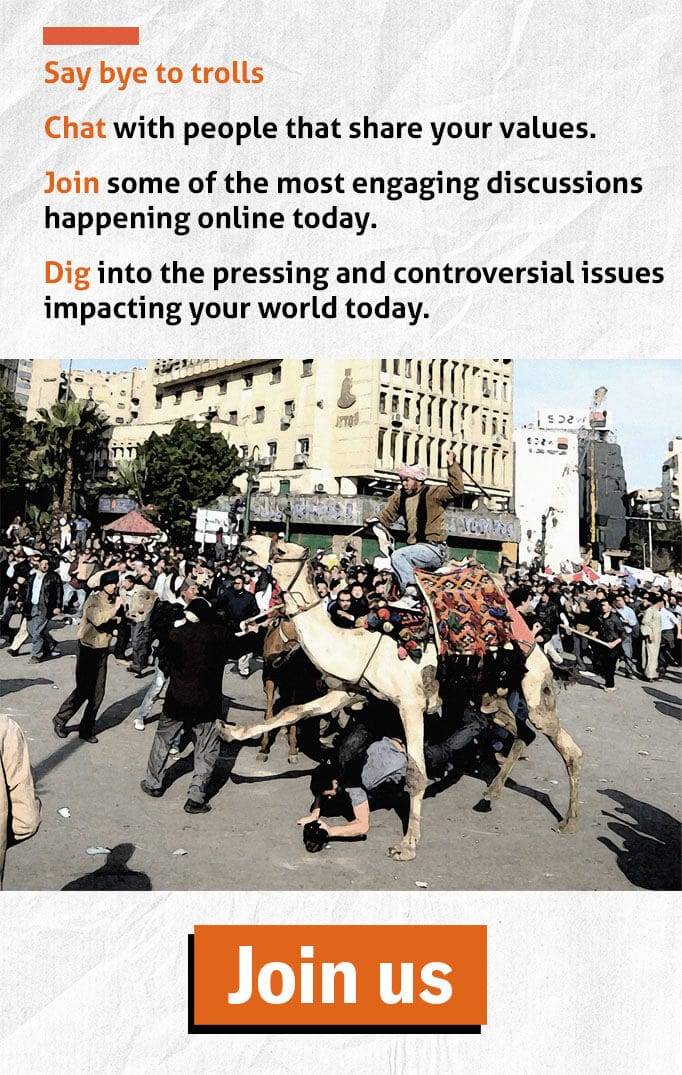Last August, a gym in Cairo published an ad that met with a lot of backlash due to what many described as its sexism and body-shaming. The ad depicted a pear followed by the tagline “This is no shape for a girl,” sending social media into a frenzy over the message of the ad, and its harmful effect on women.
The gym later issued an apology and removed the ad, penalizing the branch that was responsible for it, but in reality, the ad is simply a reflection of the type of harassment and body-shaming Egyptian women face in the public sphere on a daily basis.
Egyptian society suffers from endless crises, not least of which are discrimination, classism, and violence, a trifecta that continues to compound according to statistics in Egypt.
In one case, Ghanian national Mohamed Awal Saleh, who was studying at Azhar University, filed a complaint last June in the Gamaliyah Police Station (in one of the oldest neighborhoods in Cairo) against a group of individuals, accusing them of assaulting him and his wife by stoning them. Saleh stated in the complaint that the reason for the assault was the color of his skin.
Meanwhile, it’s no secret that Egyptian police officers will often harass people on the basis of class; if an individual’s car or clothes indicate that they are of means, they are safe, while those on the other end of the scale are far more likely to be stopped and searched at checkpoints. Moreover, it’s not an unusual sight to see a parent hitting their child in public.
And just as art imitates life, so too does advertising, and—whether intentionally or not—these disturbing behaviors have found their way into ads.
[h2]Stay Away From the Poor People[/h2]
“Because not anyone is allowed to live in Life Park, we interview people before they can move in.” This is the tagline for an ad campaign for a residential compound in the 6th of October City suburb of Cairo.
In one of the campaign ads, a nouveau-riche caricature of a woman appears speaking in a jargon that is often attributed to the slums of Egypt. The woman is applying for an apartment in the compound, but the salesperson stamps her application as “rejected”.
The ad promises potential buyers that they will be living around people of the same socio-economic standard, and that there is no space on the compound for the poor or the tasteless. In another ad in the same campaign, a man whose speech is peppered with heavily-accented English also has his application is rejected. Because, clearly, his failure to perfect his English has disqualified him from living among the creme de la creme of Life Park.
The ad campaign is similar to another one launched by Mountain View, another real estate company. The company has released a number of ads promising viewers that buying a unit on one of their compounds will ensure that they will never be in the proximity of poor people again. In one of the ads, a man is standing next to his friend as they barbecue in a garden, when another man on a scooter with Mahraganat music (largely popular in low-income districts) blaring from the speakers pulls over in front of them and asks for a liver sandwich (a popular street food in Egypt). The man responds in English, saying “what?”, which the man on the scooter of course misunderstands.
Another ad for Paradise Ras Sudr compound has the tagline: “Life is so much better when you find people like you”—in this case, “like” clearly denotes people who are of the same socio-economic status. Thus, the ad’s selling point is living among people “like you”, thereby excising oneself from the reality in which 30 million Egyptians live below the poverty line, according to governmental statistics, while civil society organizations place the actual number at much higher.
[h2]Violence Against Children[/h2]
Classism and discrimination are not the only ills passed on through advertising; violence against children is also appearing on screens. A number of popular cable channels have broadcast an ad starring Egyptian actress Hala Fakher. The ad is marketing a maintenance company for washing machines, and in it, Fakher appears preparing her coffee while insulting her son and demanding that the do chores around the house, including cleaning the kitchen. In the ad, she uses inappropriate language in addressing the child, and despite the fact that the ad violates all conventions on children’s rights, this has not prevented all the channels from broadcasting it.
This is not the only ad featuring children’s rights being violated. Another ad stirred up controversy in Egypt before it was pulled off the air. The ad, for a potato chips brand called Fox, depicts a son telling his father that when he eats these chips he sees the future. In response, his father slaps him across the face and asks him: “Did you see that coming?”
The violence becomes even more pronounced still in an ad for Mandolin chocolate. In it, a teenage boy blow dries his hair in front of a mirror with his younger sister sitting next to him. Suddenly, their father storms into the room in anger, and lashes out at the son over his appearance and clothes. He begins unbuckling his belt, when his daughter runs out of the room, leaving the father to close the door behind him and unleash his belt on the teenage boy, amid screams from him and his mother.
Yet another belt is unleashed on the body of another child, this time in an ad in which a father and son are sitting on a couch watching a trivia competition on television. The child fails to answer the questions on the show, and so his father takes off his belt and beats him with it.These ads are a translation of the way in which many Egyptian parents choose to raise their children with violence. According to the state-affiliated National Council for Childhood and Motherhood, there were 2,284 recorded cases of violence against children in Egypt during 2016.
[h2]This is Not Freedom of Expression[/h2]
“Some Egyptian ads cross the lines of freedom of expression and have entered instead into the realm of violating the freedom of others and intentionally harming them,” says Salma Mahmoud, a therapist. She further adds to Raseef22 that exposure to such ads that are filled with violence and discrimination has a major effect on the viewer, who receive such violence and anger in high doses. Moreover, it heightens the chances of violent behavior in the victim, particularly children.
“According to psychologist Albert Bandura’s social learning theory, humans tend towards replicating the models that they see, involuntarily unifying themselves with what they see, which in turn affects their values, principles, and behaviors, which have regressed to frightening levels over the past years,” Mahmoud adds.
She explains the normalization of such ads by saying: “The viewers’ responses to the advertising content varies according to their personality type and susceptibility. They may become more hostile and violent, or the repeated exposure to such content may cause them to become desensitized to pain and suffering. In all cases, they are extreme responses that result from the violent and discriminatory content that the viewer is repeatedly exposed to.”
Raseef22 is a not for profit entity. Our focus is on quality journalism. Every contribution to the NasRaseef membership goes directly towards journalism production. We stand independent, not accepting corporate sponsorships, sponsored content or political funding.
Support our mission to keep Raseef22 available to all readers by clicking here!




Join the Conversation
Tayma Shrit -
37 minutes agoمدينتي التي فارقتها منذ أكثر من 10 سنين، مختلفة وغريبة جداً عمّا كانت سابقاً، للأسف.
Tayma Shrit -
38 minutes agoمدينتي التي فارقتها منذ أكثر من 10 سنين، مختلفة وغريبة جداً عمّا كانت سابقاً، للأسف.
Anonymous user -
3 hours agoفوزي رياض الشاذلي: هل هناك موقع إلكتروني أو صحيفة أو مجلة في الدول العربية لا تتطرق فيها يوميا...
Anonymous user -
3 hours agoاهم نتيجة للرد الايراني الذي أعلنه قبل ساعات قبل حدوثه ، والذي كان لاينوي فيه احداث أضرار...
Tester WhiteBeard -
15 hours agoEgypt
Tester WhiteBeard -
15 hours agoGreat